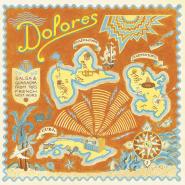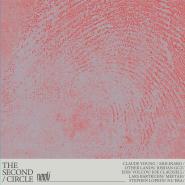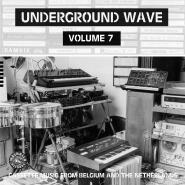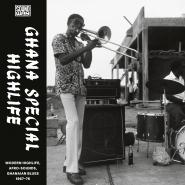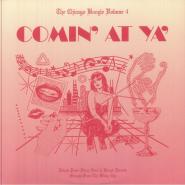PRENDS LE TEMPS D'ECOUTER: TAPE MUSIC, SOUND EXPERIMENTS & FREE FOLK SONGS BY CHILDREN FROM FREINET CLASSES 1962-1982 by VARIOUS ARTISTS
| SKU | 130576 |
| Artist | VARIOUS ARTISTS |
| Title | PRENDS LE TEMPS D'ECOUTER: TAPE MUSIC, SOUND EXPERIMENTS & FREE FOLK SONGS BY CHILDREN FROM FREINET CLASSES 1962-1982 |
| Label | BORN BAD RECORDS |
| Catalog # | BB 161LP |
| Tag | |
| Release | W 39 - 2023 |
| Format | Vinyl - EULP |
| EAN Barcode | 3521381576849 |
| Benelux exclusive, Import | |
| € 28,50 | incl. VAT, excl. shipping |
Tracks
- prends le temps decouter
- une petite fleur
- voix tube a musique
- se glisser dans ton ombre
- the ocean
- metallophone basse xylophone batterie
- francais
- loiseau rare
- larsen et percussion
- voix guitare petites percussions
- laissez-moi rever
- hiroshima
- lenfant de la liberte
- avec quelques instruments simples
- ariel et guitare
- cetait lhistoire
- une petite fleur joue tres doux
- saturne
- jean patrice herve discutent
- une petite fleur joue a laigu
- le vent
- les monstres jeu dramatique danse
- cest triste de quitter ses amis
Description
Vinyl LP + 20 pages booklet 20cmx15cm
France, early sixties: the Mouvement de l’École moderne is in full bloom. Relying on the experiments and writings of its founder, the educationist Célestin Freinet, this consortium of teachers is about to give empirical evidence proving that another approach to music in school can be fruitful, distancing itself from government directives.
With its pragmatic, anti-authoritarian tack, the method that Freinet was already developing in the 1920s held children in respect, giving them confidence and autonomy. In a Europe that was just beginning to recover from WWI, Freinet was working concomitantly with the historical burgeoning of active learning promoted by other great educationists such as Montessori in Italy, Decroly in Belgium or Ferrière in Switzerland, notably within the Ligue international pour l’Éducation nouvelle. Freinet very soon started to put his principles into practice, experimenting in person a series of innovating techniques that would become emblematic: removing the rostrum, reorganizing the classroom, encouraging cooperation, developing activities such as school printing or inter-school correspondence… And all this went with the publishing of documentation, files and specific teaching material by the Coopérative de l’Enseignement Laïc (the CEL, a cooperative for secular education).
A team of inspired associates quickly formed around Célestin and his wife, Élise. Intent on circulating ideas and perfecting methods, they also contributed to structuring a Mouvement that drew increasing attention. When the couple founded its emblematic alternative school in the small town of Vence, in 1934, the CEL was already counting more than three hundred members from sixty different territorial departments. At the dawn of the sixties, the Mouvement gathered a considerable number of teachers working in state schools, and even if they were far from constituting any kind of majority, they could be found throughout the national territory.
As the wish to encourage free expression was central in the Freinet philosophy, arts and crafts were given more importance at school; in this regard, singing and music had a part to play, just as much as writing or drawing. While classrooms filled with a joyful jumble of sound-making objects (springs, bottles and basins, dismantled piano frames, drums, bamboos and the first DIY electronics), singular forms of music started ringing out: wild improvising, delicate a-cappella singing, clanks and dissonant string hammerings, basic experiments with magnetic tapes, evanescent folk songs…
This approach might seem surprisingly ahead of its time, but what is even more astonishing is that physical traces of these experiments can still be accessed today. Between 1962 and 1982, recordings collected from schools everywhere around France were compiled on dozens of vinyl records. Mostly destined to teachers and friends supporting or gravitating around the Mouvement, these short-format records documented the evolution of practices and approaches: catchy headings such as “Musique libre” (free music), “Recherches sur la voix” (vocal experiments), “Musiques concrètes” (concrete music), “Musiques électroniques” (electronic music) or “Musiques d’ailleurs” (music from elsewhere) are particularly telling. And the music that could be heard on these groundbreaking records was the work of pupils from small towns in Lot-et-Garonne, Oise and Alpes Maritime – not exactly the archetypal privileged children benefitting from an upper-class economic and cultural background… Rather, children from rural schools with a single classroom, and sometimes, atypical or struggling children oriented towards the so-called “classes de perfectionnement.”



